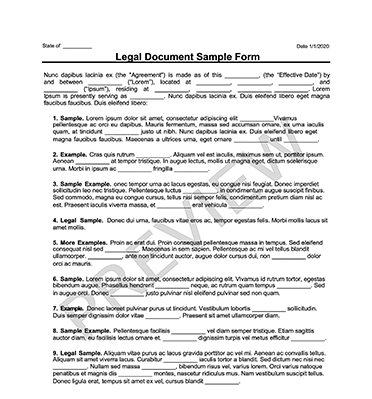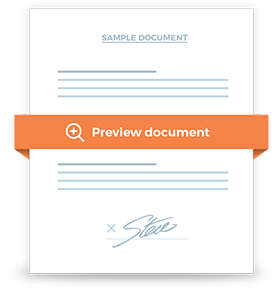What Is a Contract for Deed?
Those who would rather not apply for a mortgage, either because they do not qualify or for any other reason, can use a Contract for Deed to purchase property directly from the seller. A Contract for Deed establishes a legal agreement between a buyer and seller regarding the purchase of a property. This contract states that the buyer will purchase the property from the seller for payment installments that they pay over a period of time. The seller retains ownership of the property until receiving the final installment, after which ownership transfers to the buyer.
With this type of arrangement, buyers avoid closing costs and other costs of a traditional mortgage loan. If the buyer defaults on the payment, the seller can terminate the Contract for Deed without returning the money collected thus far, although that can be negotiated in the contract. It is possible for properties to change hands faster using a Contract for Deed than with a traditional mortgage loan.
Other Names for Contract for Deed
Depending on your state, a Contract for Deed may also be known as:
- Land Contract
- Land Sale Contract
- Land Purchase Agreement
- Simple Land Contract Purchase Agreement
- Agreement for Deed
- Installment Sale Agreement
- Land Installment Contract
Who Needs a Contract for Deed?
Individuals who want to purchase a property without turning to a traditional lender for a mortgage can enter into a Contract for Deed with the seller. A Contract for Deed is most popular with those who do not qualify for a mortgage because of an insufficient deposit, bad credit history, or low debt-to-income ratio.
Why Use 360 Legal Forms for Your Contract for Deed?
Customized for you, by you
Create your own documents by answering our easy-to-understand questionnaires to get exactly what you need out of your Contract for Deed.
Specific to Your Jurisdiction
Laws vary by location. Each document on 360 Legal Forms is customized for your state.
Fast and easy
All you have to do is fill out a simple questionnaire, print, and sign. No printer? No worries. You and other parties can even sign online.
How to Create a Contract for Deed With 360 Legal Forms
A Contract for Deed comes with a high degree of inherent risk for both the seller and the buyer. It has to use specific language to pass legal muster.
Let 360 Legal Forms help with our extensive library of attorney-vetted legal forms. The process is fast and easy. All you have to do is fill out our easy-to-understand questionnaire. Once complete, simply download your form as a PDF or Word document from your secure online account.
What Information Will I Need to Create My Contract for Deed?
To create your document, please provide:
- Seller information: The legal name and contact number of the seller
- Buyer information: The legal name and contact number of the buyer
- Property information: The address and parcel number of the property
- Price details: The full purchase price of the property
- Number of installments: The total number of payments to be made
- Down payment: The amount of the down payment, if any
- Late payment penalties: Penalties if the buyer is late with the payment
- Buyer and seller responsibilities: The responsibilities of both parties for the duration of the contract
- Interest rate: The interest rate imposed on the principal of the loan (purchase price minus down payment)
- Signatures: Both parties must sign the document
Contract for Deed Terms
- Buyer: The party purchasing the property from the seller
- Seller: The seller of the property
- Installment: An arrangement where the purchase price is split into equal amounts to be paid over an extended period
- Down payment: An amount of money paid upfront as a sign of commitment, usually expressed as a percentage of the full purchase price
- Deed: An instrument of legal transfer, in this case, the ownership of a property
Contract for Deed Signing Requirements
The Contract for Deed requires the signature of the seller and the buyer. Notarizing the document is not necessary.
What to Do With Your Contract for Deed?
After you have generated your Contract for Deed on 360 Legal Forms, download and print copies. Both parties sign the Contract for Deed, after which they should each keep a signed copy of the document in their records.





